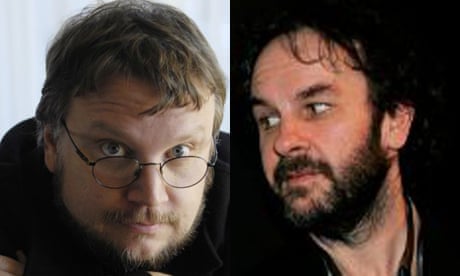When Peter Jackson announced two years ago that he was handing Guillermo del Toro the reins to The Hobbit, there were more than a few raised eyebrows. Sure, Del Toro had the vision, skill and understanding of fantasy to adapt JRR Tolkien's earlier book in a manner that would allow it to sit comfortably with the three Lord of the Rings films while maintaining its own distinct character. But why was Jackson himself not directing? They say never go back, but The Lord of the Rings trilogy was Jackson's making as a major commercial director. How could he resist returning to Middle Earth?
It turned out that he couldn't. Initially positioned as an executive producer, Jackson soon moved on to working with Del Toro on the screenplay, along with his regular collaborators, Philippa Boyens and Fran Walsh. Later, Jackson said he had offered his services as second unit director; with Del Toro planning two films, the argument went, he would need all the help he could get.
Given that Del Toro announced earlier this week he was leaving The Hobbit, you may wonder where I am going with all this. Have no fear: I am not doubting the Mexican film-maker's given reasons, nor am I suggesting a conspiracy. Del Toro says he signed up for three years, but is unwilling to commit to six, and we must believe him. Yet it would be pretty naive to suggest there is no part of Peter Jackson pleased to find he might still get to direct The Hobbit.
Will he take on the project? Jackson himself said earlier this week that he might, should it be the only way of safeguarding Warner Bros' investment. His manager seems to think it's pretty unlikely, however. Jackson has commitments to several other movies, and would need to be released from those first.
The vagaries of inter-studio bartering are of little interest to filmgoers. All we want to know is who is the best person for the job, and Jackson is clearly the fellow. This is the director who transformed The Lord of the Rings from an unfilmable white elephant of English literature into a blockbuster trilogy. Jackson suggested three years ago that he did not want to compete with his own previous films, but that seems like strange and shallow reasoning: given all the work he and his team have done to prepare the screenplay, he is the ideal man to plunge straight in and make the film happen. Any other option risks further delays.
If he does not direct, he must decide whether to plump for an established film-maker who has the back catalogue and standing to offer their own take on the story, or bring in a less experienced director to do the donkeywork while Jackson pulls the strings as a creative producer. Go for the former and further delays are risked, as whoever comes in might want to change aspects of the screenplay or art direction. Take the latter option and he might as well just direct the thing himself.
Here's another reason Jackson might want to take the controls: The Hobbit mess is largely of his own making. While much of the delay in shooting has been due to the financial crisis at MGM, the project has also changed shape dramatically during the screenwriting process. At first, it was supposed to be two films: one based on Tolkien's Hobbit, and another acting as a bridge leading up to the events of The Lord of the Rings. Then, last year, it was announced that both films would be based on The Hobbit alone. This was an eminently sensible decision, since there is little in Tolkien's writings to draw on for a bridge film, yet it ignores an essential problem: only one film is needed.
Jackson ought to have stood up to the studios in the first place and insisted that there was no need for the narrative to be split in two. Warner and MGM have in mind the huge success of the Lord of the Rings films, and are no doubt imagining back-to-back Christmas releases. But The Hobbit is a far shorter, simpler tale, and should be shot as a single movie.
Any director who arrives this late in the day is going to have to accept all of their predecessor's decisions, and that is a big ask. Alfonso Cuarón or Sam Raimi would make fine choices if Jackson wants film-makers with experience and vision. Both love the fantasy genre, as viewers of the excellent third Harry Potter film, The Prisoner of Azkaban, or the third Evil Dead movie will be well aware (let us not mention Xena: Warrior Princess). District 9's Neill Blomkamp would work well with Jackson acting as a mentor, as he did on last year's Oscar-nominated sci-fi movie.
But in the end, there is only one person for the job. When it comes to Middle Earth, Jackson took us there, and he should take us back again.

Comments (…)
Sign in or create your Guardian account to join the discussion